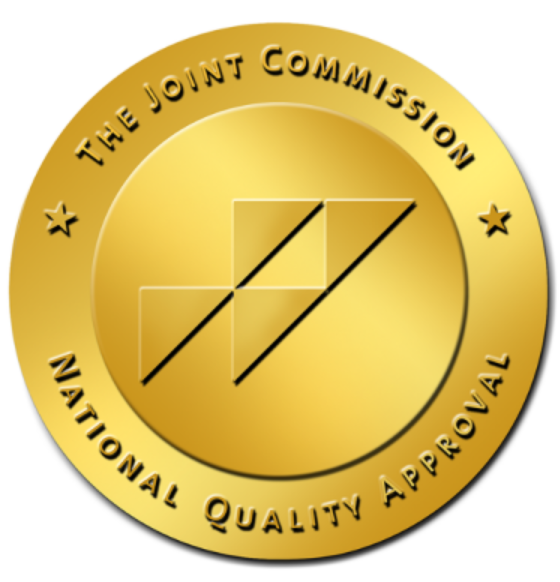Partial Hospitalization Program (PHP) Los Angeles
What is a Partial Hospitalization Program?
Partial hospitalization programs, or PHPs, are a type of outpatient program for alcoholics and addicts in recovery. Of the different levels of care available among outpatient programs, partial hospitalization programs offer the most intensive care. For addicts who would prefer to avoid attending an inpatient or residential program, PHPs offer a degree of flexibility that allows an addict to follow a treatment plan in a structured environment while still living at home. PHPs generally take place in a hospital, clinic, or community mental health center. While many PHP patients go home to their own apartments or their families at the end of the day, others choose instead to enroll in a sober living home. Doing so can provide an additional degree of stability.
Because PHPs take place during the day without requiring patients to uproot themselves, it is an effective way for recovering addicts to generate stability in their lives while developing the tools they need to recover from addiction. PHPs can be a useful stopgap for recovering addicts who are transitioning from an intense residential program to a less structured outpatient program. Partial hospitalization is sometimes also recommended by medical professionals who believe a patient is in need of hospitalization but want to avoid full hospitalization because they think the patient would benefit from a consistent home life.
Our Levels of Care
Partial Hospitalization
Partial Hospitalization Programs (PHP) are a great option for individuals who want the intensity and structure of an inpatient treatment program with the flexibility of an outpatient program.
Intensive Outpatient
Intensive Outpatient Programs (IOP) provide individuals with a thorough, daily regimen of group and individual therapy that newly sober individuals need in the first few months of recovery.
Outpatient Treatment
Outpatient treatment programs are an effective and very flexible kind of treatment program for individuals struggling with addiction, mental health and impulse control disorders.
Aftercare Planning
Aftercare treatment programs are services that people who graduate from inpatient and outpatient programs are advised to make use of to facilitate long term sobriety after leaving treatment.
How Does a PHP Work?
Patients enrolled in a partial hospitalization program generally participate in treatment for most of the day – sometimes up to 8 hours a daily. In some ways, enrolling in a PHP can be like enrolling in college or getting a new full-time job. The difference is that your job is recovering from a substance use disorder.
The treatment modalities used depend on several factors, including the philosophy of the treatment program and the nature of the patient’s addiction and overall mental health. However, most treatment plans include some combination of the following:
The Benefits of an Outpatient Treatment Program
It Allows for a Flexible Schedule
One of the most important benefits of a PHP is that recovering individuals can still receive the level of care they need without abandoning other priorities and commitments. Patients with children and families can find it difficult to justify enrolling in a full-time residential program. Others would rather not give up their jobs to get sober. Every recovering individual has different needs. A program that respects these different needs is the one that is most likely to help the individual find lasting sobriety.
It's Great for Transitioning from a Residential Program
Research suggests that the longer a recovering addict follows a treatment plan, the lower their chances of relapse down the line. After completing a full-time residential program, however, many are at a loss about what to do next. For most addicts, an outpatient care plan is too unstructured a level of care this early on in their recovery. Finding a middle ground that allows the patient to receive intensive group therapy while also beginning to learn again how to live at home is very beneficial both to mental health and to behavioral health.
It's Affordable
Residential treatment programs tend to be somewhat more expensive, given that the programs give residents a place to sleep at night and offer more intensive services. Partial hospitalization programs offer highly individualized care with a slightly lower price tag. Whether the patient is paying out of pocket or using insurance, enrolling in a PHP is far less likely to break the bank.
PHP for Co-occurring Mental Health Disorders
Enrolling in a partial hospitalization program is a particularly good idea for those who have a mental health disorder in addition to a substance abuse problem. While it is indeed possible to recover from drug and alcohol addiction alone without enrolling in an intensive outpatient program, people with anxiety, depression, or other mood disturbances can benefit from the in-depth attention and treatment options that a PHP provides.

When someone suffers from co-occurring mental health disorders, they are referred to as “dual diagnosis” or “co-morbid.” The term co-morbid implies not just that the disorders exist simultaneously in the same patient, but that they affect each other. Co-morbid individuals are notoriously difficult to treat. Part of this is due to the way mental health disorders and addiction reinforce each other. For many people with depression, for example, substance abuse can start off as a way of self-medicating. Meanwhile, substance abuse tends to worsen the effects of depression, which only further perpetuates the cycle. For this reason, it is rare for co-morbid patients to successfully treat their drug and alcohol problems without simultaneously addressing their mental and behavioral health issues. A PHP is uniquely useful to this population because it has the resources to tackle both problems.
Are You a Good Candidate for a Partial Hospitalization Program?
Partial hospitalization programs are an excellent level of care for recovering individuals who want the intensity and structure of a residential treatment program with the flexibility of an outpatient program. Some populations who might find a PHP appropriate include:
How Do I Find and Make Financial Arrangements for a Partial Hospitalization Program (PHP)?
Of the different levels of care available among outpatient programs, partial hospitalization programs offer the most intensive care. For individuals who would prefer to avoid attending an inpatient or residential program, PHPs offer a degree of flexibility that allows patients to follow a treatment plan in a structured environment while still living at home.
Partial Hospitalization Programs at Create Recovery Center
Create Recovery Center offers multiple levels of care for individuals seeking recovery. It is crucial to remember that recovery from substance addiction requires more than just abstinence. This process requires a complete change in most areas of everyday life. This is especially true for co-morbid individuals who suffer from one or more additional mental health disorders. Services that Create Recovery Center offers as part of our partial hospitalization program include but are not limited to:

Feel free to reach out if you have any questions about Create Recovery Center’s partial hospitalization program in Los Angeles, California. A representative will be happy to discuss your unique medical and financial circumstances to ensure you are placed in the program most likely to enrich your life.







